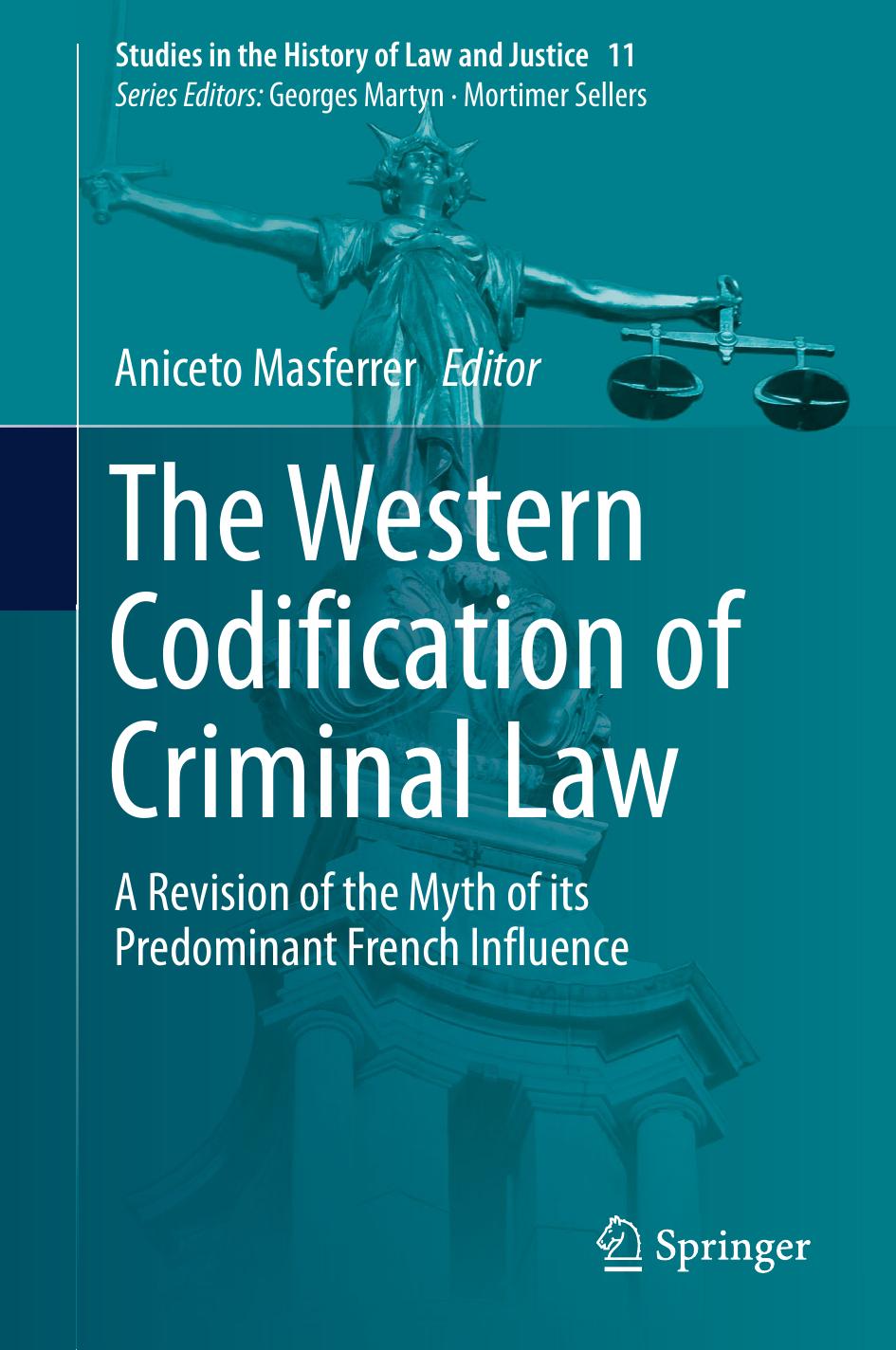The Western Codification of Criminal Law by Aniceto Masferrer

Author:Aniceto Masferrer
Language: eng
Format: epub, pdf
Publisher: Springer International Publishing, Cham
Particular institutions: an on-going research project
Punishments are a particularly informative group of criminal law institutions with regard to the influence of the French codes over the codification of criminal law in Spain. A historical analysis of the French tradition reveals that the codification’s punitive system was relatively similar to that in force in France in the 18th century. Describing the variety of punishments, Muyart de Vouglans, a famous French lawyer,235 mentioned the following typology of punishments: capital,236 corporeal,237 afflictive,238 infamous,239 and pecuniary.240
Bérenguer distinguished between capital punishments (death penalty,241 galleys, perpetual exile or banishment), afflictive punishments (any kind of corporeal punishment), and infamous punishments (l’amende, temporary exile, le blame, and the criminal amende).242 In addition to these, he showed that the distinction between principal penalties and accessory penalties existed at least from the Criminal Ordinances of 1670 promulgated by Louis XIV.243
It may be that some punishments included in the French criminal code were partly adopted by other European codes, but this requires careful analysis. For Spain, as in France, many punishments in the codes originated in the domestic criminal law tradition.244 The question is to what extent these punishments were influenced by the Code pénal. I will briefly a few some examples.
The French model scarcely influenced the punishment of infamy in the 1822 criminal code,245 and it was abolished in 1848,246 even though France continued to enforce it until 1994.247 The disqualification from holding public office as a consequence of a criminal conviction reflects a certain degree of influence from the Napoleonic code,248 but much less than from other European jurisdictions, such as Germany.249 The same applies to civil interdiction. Whereas in Spain this punishment affected only private law,250 in other European countries (Prussia, Portugal, Italy and Belgium, among others) its legal consequences affected both private law and public law because of the French model’s influence.251
More examples could be added. In fact, this is the subject of on-going research involving a group of scholars from various jurisdictions, Spain among them.252 This volume presents some of its results, and the present chapter hardly encapsulates what Spanish historiography has achieved in recent years. Moreover, a group of Spanish legal historians are working on a book that will notably advance the current state of the field.253
Download
The Western Codification of Criminal Law by Aniceto Masferrer.pdf
This site does not store any files on its server. We only index and link to content provided by other sites. Please contact the content providers to delete copyright contents if any and email us, we'll remove relevant links or contents immediately.
The Borden Murders by Sarah Miller(4325)
The Secret Barrister by The Secret Barrister(3711)
Police Exams Prep 2018-2019 by Kaplan Test Prep(2549)
Coroner's Journal by Louis Cataldie(2480)
The Splendid and the Vile by Erik Larson(2476)
Terrorist Cop by Mordecai Dzikansky & ROBERT SLATER(2081)
A Colony in a Nation by Chris Hayes(1936)
My Dark Places by James Ellroy(1931)
The Art of Flight by unknow(1878)
Black Klansman by Ron Stallworth(1798)
Objection! by Nancy Grace(1786)
A Life of Crime by Harry Ognall(1733)
The New Jim Crow by Michelle Alexander(1702)
Anatomy of Injustice by Raymond Bonner(1670)
American Prison by Shane Bauer(1661)
Invisible Women by Caroline Criado Perez;(1643)
Whoever Fights Monsters by Robert K. Ressler(1620)
Obsession (The Volkov Mafia Series Book 1) by S.E Foster(1580)
A is for Arsenic: The Poisons of Agatha Christie (Bloomsbury Sigma) by Kathryn Harkup(1549)
